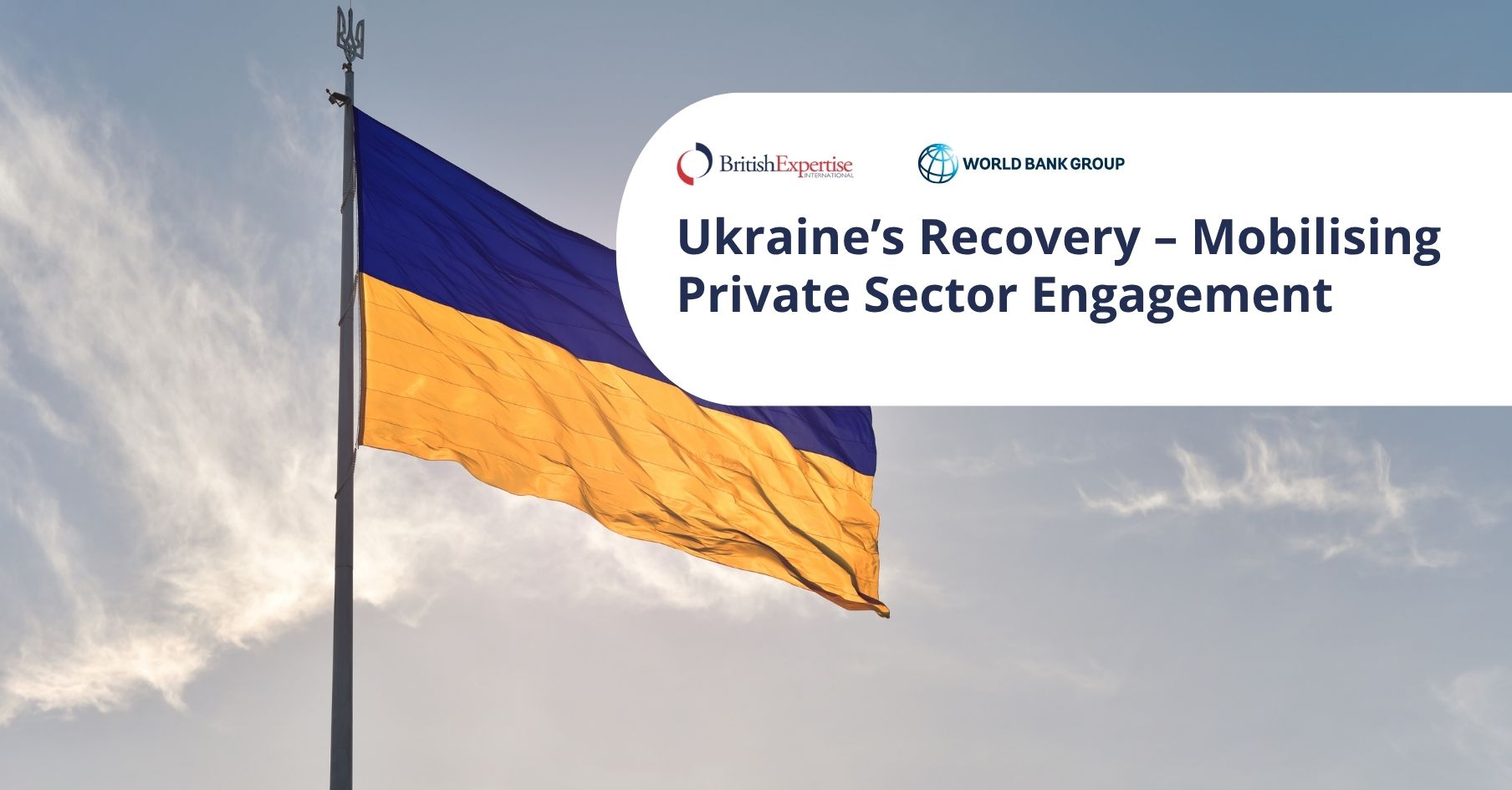BEI recently convened its members for a discussion with the World Bank to explore Ukraine’s post-war recovery, focusing on the current economic outlook and the World Bank’s programming in the region. Sharing insights on behalf of the World Bank were Bob Saum, Country Director for Ukraine and Moldova, and Yue-Man Lee, Lead Economist and Program Leader for Prosperity for Eastern Europe. The below piece expresses and outlines key takeaways using insights from the discussion.
The World Bank in Ukraine and the role of the private sector
As per the World Bank in Ukraine page, current programming is focused on emergency support to keep essential services functioning and laying the groundwork for long-term reconstruction and reform. This includes helping the government shape its post-war economic strategy, the “Ukraine Economy of the Future”: a private-sector-driven economy, positioned for EU membership.
With the Ukrainian government committed to reducing the heavy state footprint, reprivatising assets and reintroducing competition, the country’s recovery will benefit from private sector involvement. While many sectors remain highly concentrated and dominated by large players, bringing in more start-ups and innovative firms will be essential to Ukraine’s recovery – but the environment must be attractive for investment. The World Bank Group is supporting this through financing and advisory work, including over $2.6 billion mobilised via IFC to strengthen private sector participation.
What is needed in the investment landscape?
Current damage assessments of Ukraine put losses at over $160 billion, with housing, transport and energy hardest hit. Yet reconstruction, if done well, can drive growth and modernisation. Ukraine’s old economic model would take decades to catch up with EU living standards - a bold push on investment, productivity and labour participation could accelerate that timeline.
Alignment with EU accession goals is critical and reforms and technical assistance programmes must support that trajectory. EU assession alignment has not always been obvious for businesses outside of the EU, and whilst it is a huge task, it is also an opportunity backed by significant funding from multilaterals such as the World Bank and IFC, as well as bilateral support through guarantees and social sustainability financing.
Alongside EU accession goals, the focus should be on social inclusion as a fundamental driving force to Ukraine’s recovery. Veterans, women and people with disabilities must have equal access to economic opportunity. Without this, reconstruction risks leaving millions behind and undermining long-term stability. The private sector has a critical role to play in dismantling barriers, creating inclusive workplaces and driving reforms that ensure every individual can contribute to and benefit from growth.
Persistence and partnerships
Success will depend on persistence and partnership. Reconstruction will not be straightforward: the operating environment is complex, and the reform process is demanding. However, those who stay the course and work with strong local partners will be best placed to deliver impact and secure long-term value. For UK organisations, this is a chance to combine technical expertise with a commitment to resilience and innovation. By engaging now, businesses can help shape a more open, productive and European-aligned economy while positioning themselves at the forefront of one of the most significant reconstruction efforts of our time.


.jpg)
.png)
.jpg)


